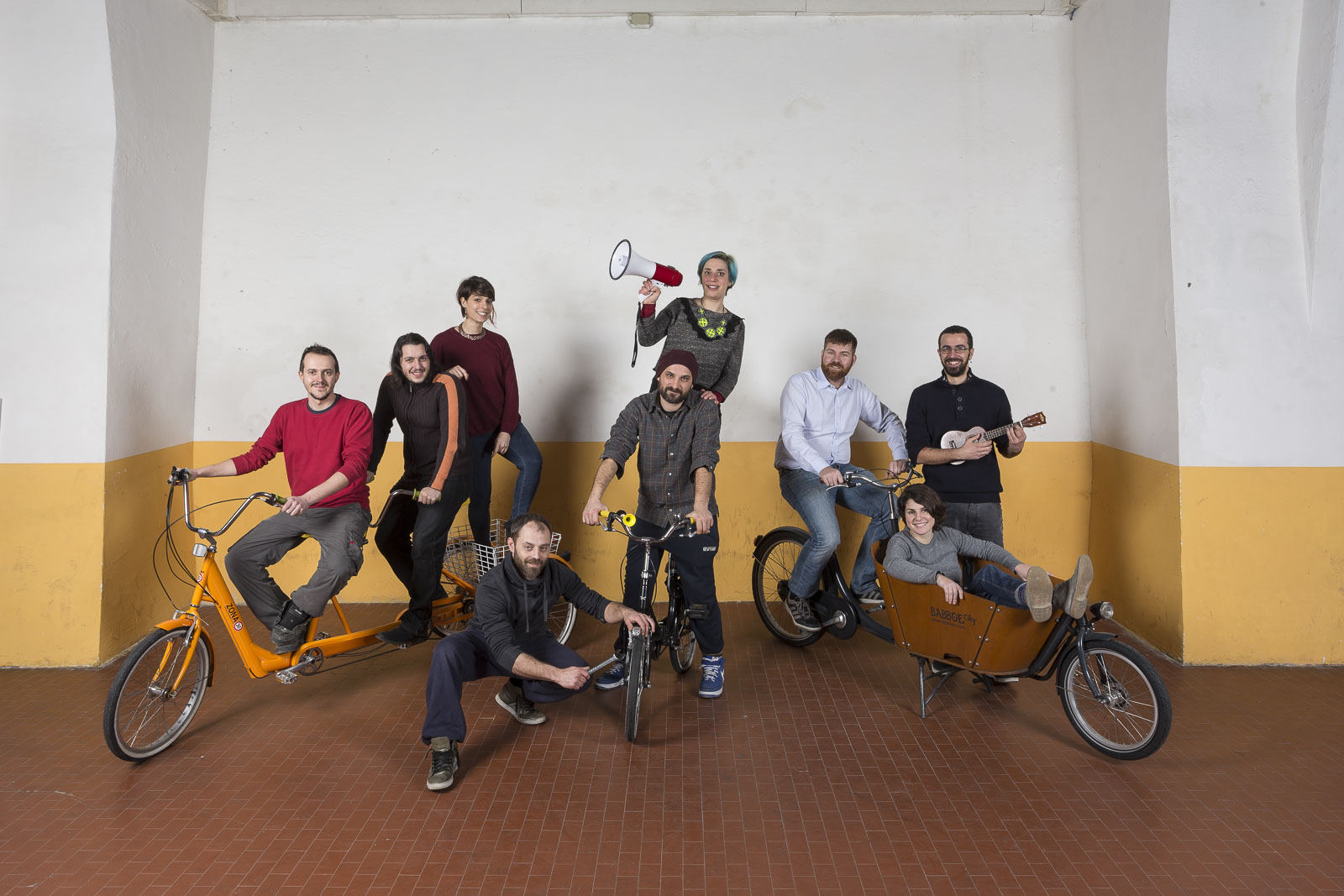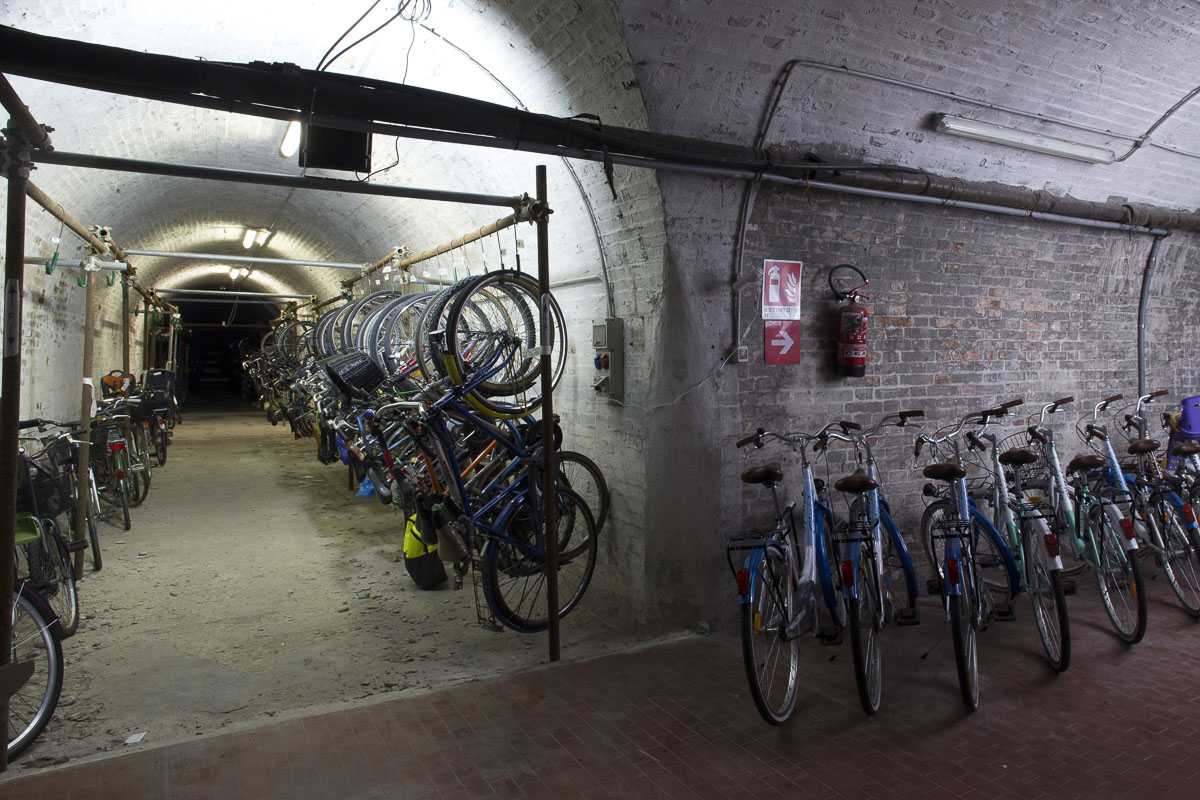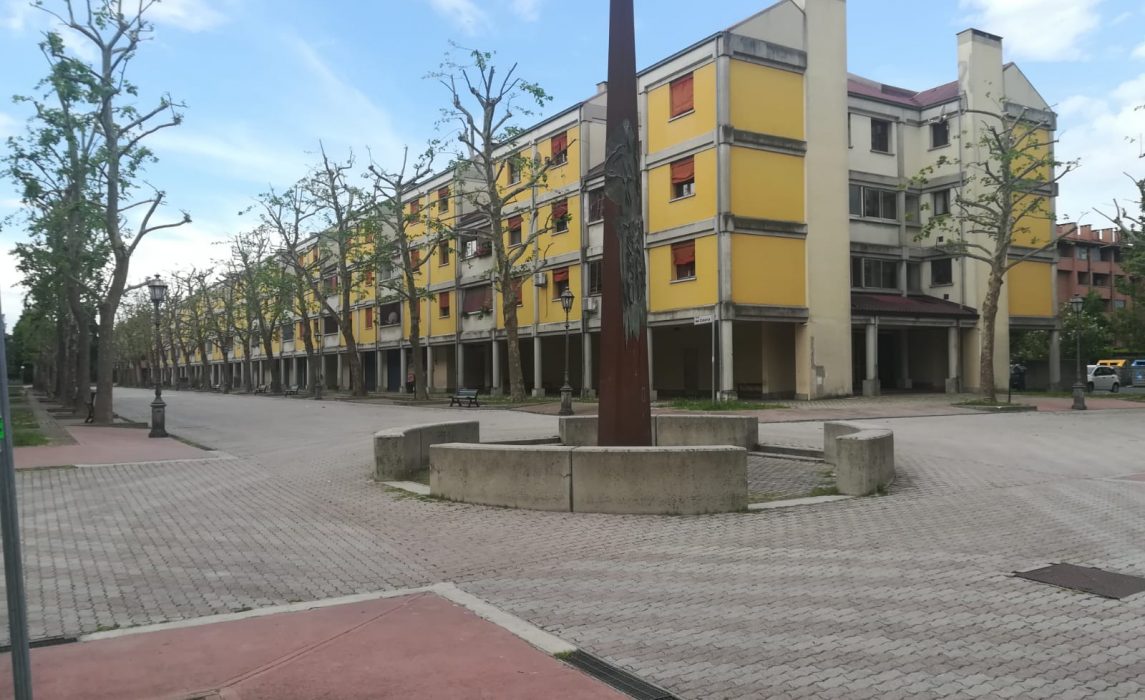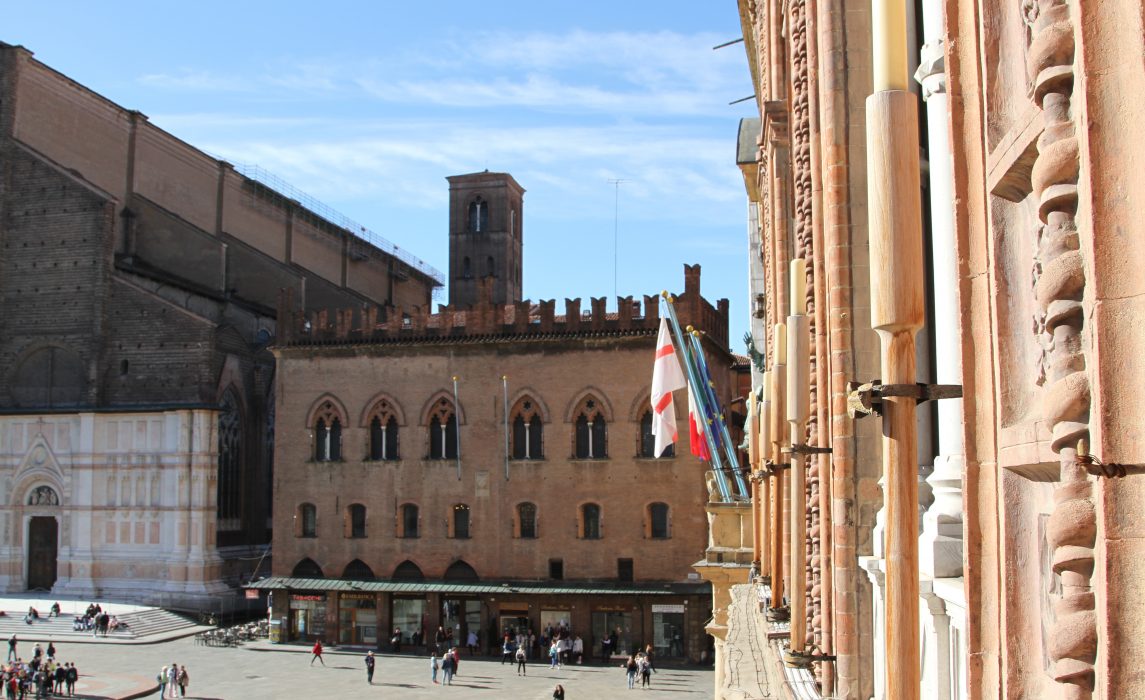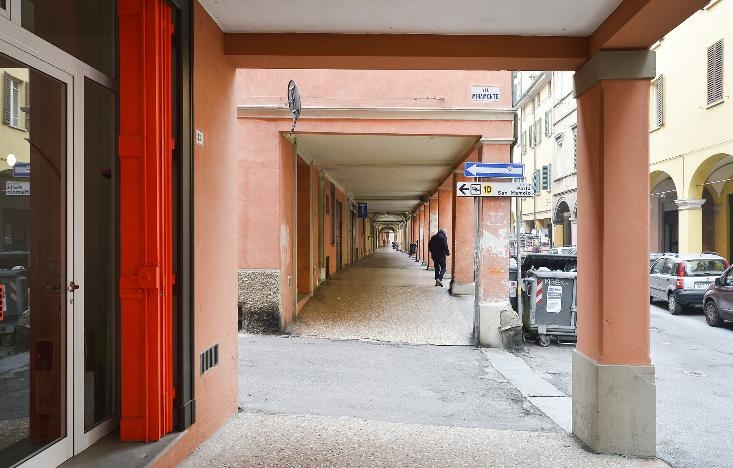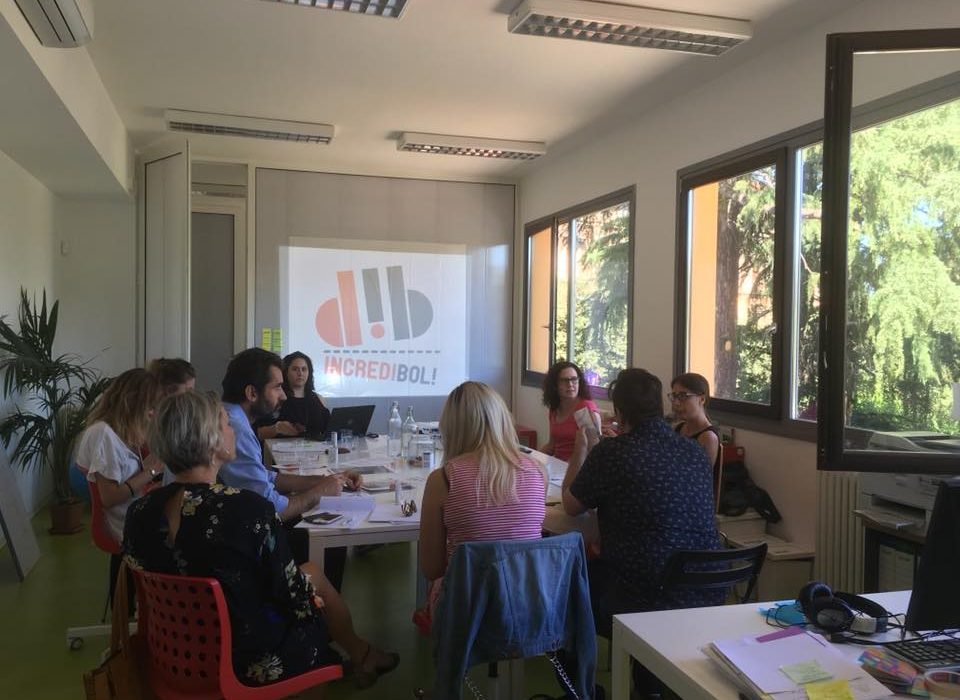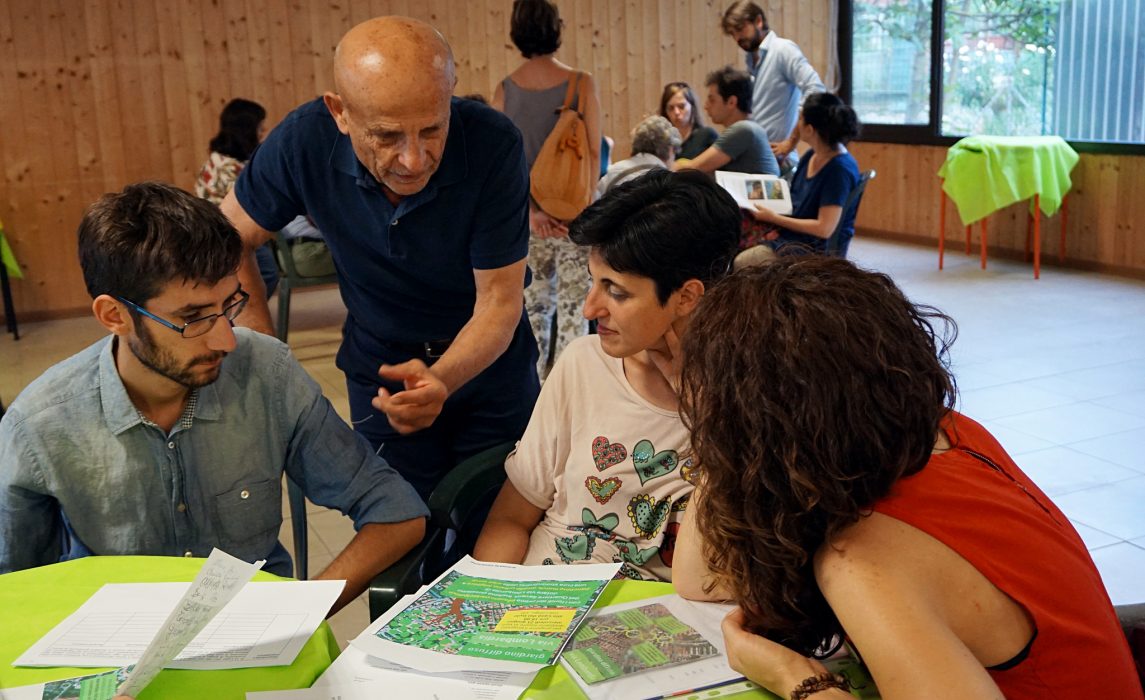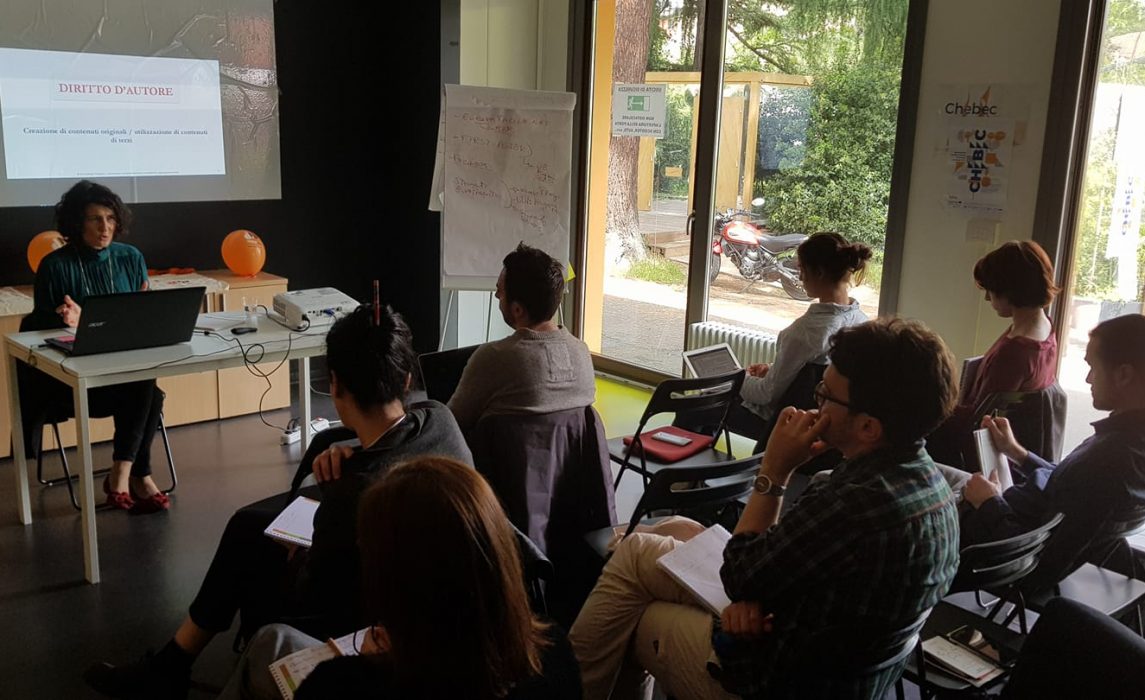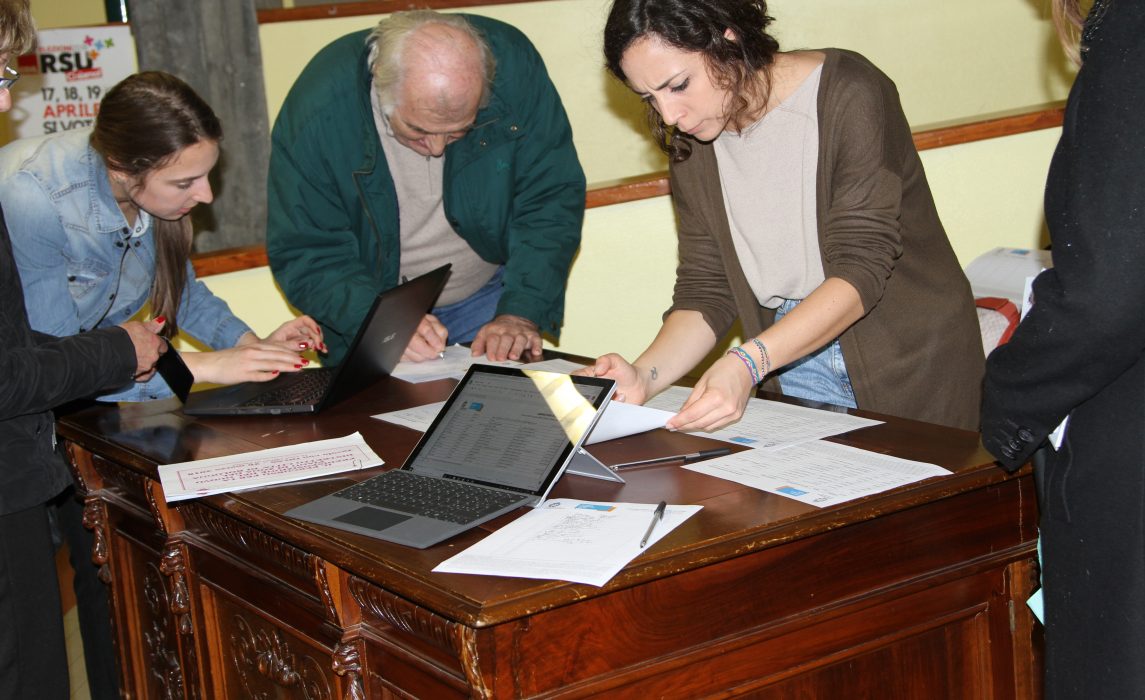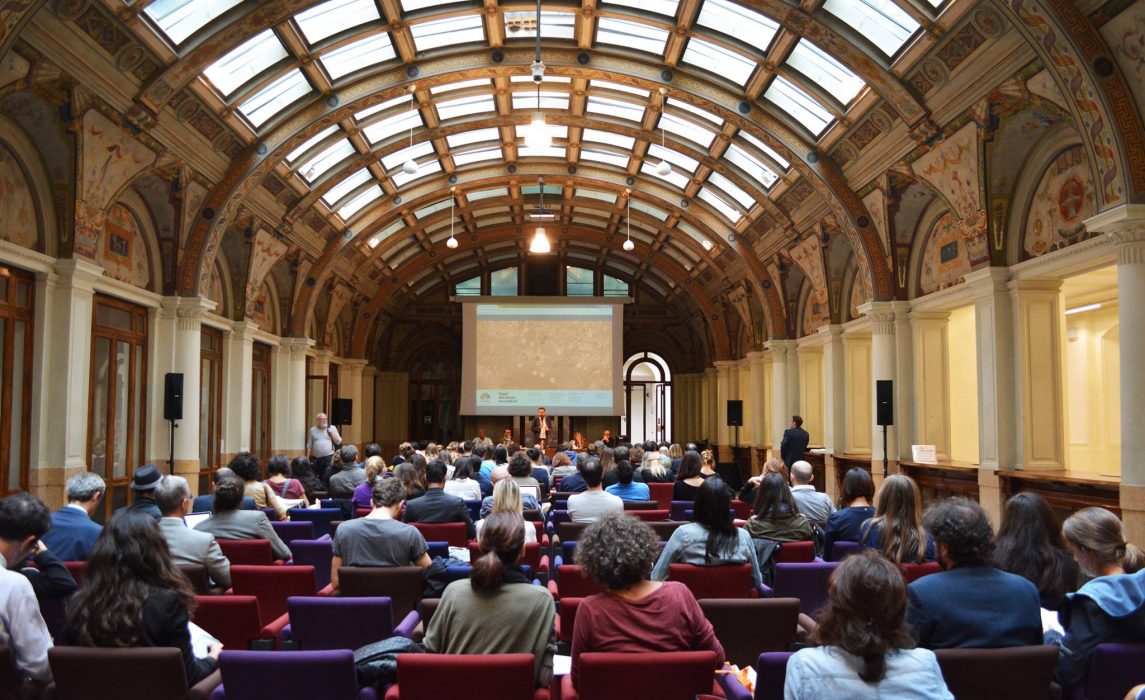Your download is ready. Click here to download.
With a relatively small financial investment, Incredibol! can help cities encourage the growth of small business, nonprofits, and other citizen-led organizations while making creative use of vacant buildings and breathing new life into languishing neighborhoods and business corridors. Through the public contest, the city selects entrepreneurs, artists, and organizations and provides support in the form of award funds, consulting services and training, and the use of city-owned property rent free.
Incredibol! can help cities transform vacant city-owned buildings into vibrant community spaces, offices, and storefronts, lowering maintenance and security costs and reducing blight. The program provides support to small businesses who may renovate spaces to suit their needs without the significant overhead cost of rent. Incredibol! can also help the city attract entrepreneurs, artists, and businesses to specific neighborhoods while helping new cultural institutions and startups grow. City leaders can tailor the public contest to support particular communities and support the kind of businesses and organizations that the city most needs.
Background
Begun in 2010 by the city of Bologna, Italy, Incredibol! is coordinated by the city and co-funded by the Emilia-Romagna Region, of which Bologna is the capital. Bologna has since received 624 submissions and named 104 winners, and the program has resulted in the renovation of 40 previously vacant spaces at little to no cost to the city. In addition to supporting numerous small businesses, freelancers, and artists, Incredibol! has helped Bologna transform its urban landscape. Residents have turned a dilapidated historic space into a self-sustaining bike rental business and community center, an abandoned market into a multipurpose community center and concert hall, unused greenhouses into a startup incubator and coworking space, and more.
How it Works
Incredibol! has a few core elements, including the awarding of grants, use of city- owned space, and support services, but can be adapted to a city’s assets, capacity, and needs. The program includes the following steps:
- Identify the public problem the contest will address. The problem should align with the mayor or chief executive’s priorities.
- Based on the problem the city is trying to address, determine the scope of the contest, including the types of projects, organizations, and individuals that may apply.
- Determine the award benefits. These can include the rent-free use of city-owned space, grants, and consulting and training services.
- Design the application criteria and scoring rubric.
- Recruit partners. Partners may include a variety of business leaders, organizations, and associations that can provide consultation and training for winners, administer prizes, help advertise the contest, and serve on the review committee.
- Launch the contest. This involves a press release and more targeted outreach within the communities that city leaders wish to support.
- Form a review committee of city staff and partner organizations to evaluate the applications and choose winners.
- Provide customized training and support, based on the needs of the winners. Partners and city staff provide this support via workshops, one-on-one meetings, and panel discussions.
- Measure the impact of the program with qualitative and quantitative measures.
- Report the results of the program back to the community.
Step 1: Identify the Public Problem
The program should be designed to address a problem or problems that align with the mayor or chief executive’s priorities. Cities of Service has found that city initiatives are most effective when they focus on a problem that aligns with the priorities of city leaders. For example, the problem in Bologna was that young entrepreneurs and artists who studied at the city’s historic university and wished to stay in the city were being lured to larger cities with more opportunities. Incredibol! provided additional support that encouraged them to remain in Bologna after graduation.
City leaders are especially well positioned to identify pressing public problems that affect the city at large, such as disinvestment in particular business districts, the lack of a creative industry or startups, and a large amount of unused office space or vacant buildings owned by the city.
Step 2: Determine the Scope of the Contest
Choose the types of projects eligible for the contest, as well as who may apply. This will be determined by the problem the city leaders want to solve and the communities they wish to support.
City leaders and senior staff may want to limit applicants to nonprofit organizations, startups, or those working in a particular industry or geographic area of the city, depending on their goals. They may also wish to focus on supporting individuals and businesses in vulnerable or underrepresented communities.
The city may decide to require that applicants are incorporated as nonprofits or businesses or have the required licenses to operate in the city or state. In Bologna, teams are only allowed to submit once, and winners are excluded from applying again in the future. Some applicants may need to be excluded for other reasons, such as those that have defaulted on debt or are excluded from contracting with the city for other reasons.
In Bologna, to encourage young entrepreneurs and new small businesses and creative professionals to apply, the city opened the contest to the following people and organizations:
- Newly founded businesses
- Freelancers under 40 years of age
- Associations or cooperatives less than 4 years old
Step 3: Determine Award Benefits
Create a list of benefits, tools, and services that the city will provide to the winners. This will vary depending on the resources the city has at its disposal. City leaders and staff can choose benefits that utilize existing relationships and resources, such as vacant spaces owned by the city. Awards should include some of the following items:
Space: Many cities own vacant buildings and office space. These can be eyesores and costly to maintain, but small businesses and other organizations may be able to refurbish them and use them as storefronts, office spaces, or community spaces.
City staff should create an inventory of available buildings and spaces, such as empty offices, storefronts, houses, and lots that are available for use by citizens and small businesses.
The city should also determine the legal and insurance requirements necessary to rent space to residents or organizations and create a contract template if one does not already exist.
In Bologna, winners are responsible for utilities, maintenance, and any costs related to refurbishing or renovating the space. The city contracts with winners for four years, with the option of renewing for an additional four years. If the winners do not use the space or use it for a purpose other than what was described in the application, either because of changes in their business plan or because they have outgrown it, the space may revert to the city.
Grants: Cash awards need not be large to be effective. Bologna provides one-time grants of €10,000, (about US$11,000). Chemnitz, a city in Germany that has also adopted a version of Incredibol!, gives awards of €2,500 and €5,000.
The city may wish to seek out partner organizations to provide or match prize money.
Consulting and Training Services: City leaders and senior staff coordinate training and consultation for winning organizations, working with partners who provide the training and consulting services pro bono. While specific supports will be determined after the winners have been selected (see Step 8), it is useful to have a sense of what services the city and partner organizations may be able to provide. The city may wish to provide support in marketing and communications, business development, legal matters, finance, fundraising, and management.
Step 4: Design the Application and Criteria
To ensure that projects are successful, city staff should design a rigorous application. This helps the review committee evaluate the project (see Step 7 below for more about the review committee) and is a valuable exercise for many of the applicants, who will have to think systematically about their projects, budget, audience, and impact. This may be their first time doing so for those who do not yet have a business plan.
Applications should include the following information as well as supporting documents and financial statements:
- Business or organization description and activities, including:
- Name and legal status of the organization
- Activities of the organization
- Target audience or customers
- Information about the sector and potential competitors
- Marketing and communications strategy
- Information about the team and partners
- Items demonstrating the organization’s viability and sustainability, including:
- How human resources are organized and managed
- Technical assets, including computer equipment and machinery
- Estimated revenue and expenses
- Current and expected funding sources
- Impact of the organization, including:
- Social or economic need the organization is filling or is expected to fill, including expected economic impact and expected social impact on the region or community where the organization is or would be located
- Prior impact or success, including evidence
- Nonfinancial needs that the city may provide, such as:
- Business writing support
- Legal consulting services
- Marketing and communications support
- Rent-free space or buildings
For Bologna’s complete application, click here.
Scoring Rubric:
Design a rubric to help the review committee score applications and choose winners. The rubric criteria may vary depending on the city’s goals. A point system is a useful way to do this.
Bologna used the following criteria to evaluate applications. Each of the six criteria was awarded points, with a maximum of 100:
- Quality of the project in relation to its development potential and connection with the artistic, cultural, and creative sector (maximum score 25)
- Project team composition meets the targets of the competition (maximum score 10)
- Technical feasibility and economic sustainability (maximum score 25)
- Local socioeconomic benefits (maximum score 10)
- Level of innovation of the project in relation to its creative content and/or its social interest (maximum score 20)
- Accuracy, quality, and clarity of the project presentation (maximum score 10)
In case of equal scores, priority is given to projects involving people with the lowest average age due to the city’s focus on attracting young artists and entrepreneurs.
Step 5: Identify and Recruit Partners
Recruit partners from city agencies, local businesses, and community organizations. Partners are necessary to provide consultation and training to winners, advertise the contest, and serve on the review committee. Partner organizations can provide these services at no cost to the city.
Partner organizations may include:
- Educational institutions
- Professional and trade associations
- Foundations
- Financial institutions
- Businesses, legal, and financial consultants
- Arts organizations
- Local government agencies
- Nonprofit organizations
- Experts familiar with the applicant’s industry, such as artists, freelancers, or business leaders
Step 6: Launch the Contest
Send out a press release to officially launch Incredibol! and post information about the contest on the city website and social media. The city may also want to organize a special event to announce the program or provide information during existing community events where target applicants will be.
Outreach to the Community: In addition to traditional advertising via online media and flyers, city staff should reach out to specific communities they wish to have apply. Ask partner organizations to assist with marketing and to organize public meetings open to groups you wish to target. Hosting a booth or table at citywide and community events is another effective way to raise awareness and increase the number of applications.
Step 7: Form the Review Committee
Form a review committee to evaluate the projects. This should include city employees familiar with business and economic development in the city.
The committee may also include members of partner organizations who have insight into the sector or community that city leaders wish to develop, such as members of local arts organizations, nonprofits, and legal experts. If a partner organization is not part of the committee, city staff may provide the applications to the partner organization and solicit feedback in an organized way, such as through a group discussion or survey.
Step 8: Provide Customized Training and Support
After winners are selected, city leaders and senior staff, together with representatives of some or all of the partner organizations, should meet with winners to discuss their projects. At this meeting, winners will present their projects along with any changes or adjustments since their application, answer questions, and discuss what kind of support they need from the city or partners.
Based on what the winners request and what the city staff and partners believe the winners need, design customized education and training opportunities for each winner. Customized training ensures that the city and partners do not spend time and funds on unnecessary training and increases the chance of success for each project.
Partners can serve as experts and consultants to winners, and city staff can also provide consulting services. Topics may include:
- Marketing and communications
- Business development
- Legal matters
- Finances
- Public speaking
- Management
- Raising capital or fundraising
Services can be provided in one-on-one meetings for individuals and as workshops, panel discussions, or classes if multiple winning organizations require the same services. Some training and workshops may be led by professional educators, such as certified teachers or trained facilitators. Other can be led by practitioners and experts in a particular field.
After the winners have been selected, city leaders and senior staff may need to recruit additional partners to address their particular or specialized needs.
Step 9: Show Impact
Demonstrating impact is essential to the program’s long-term success. This can
be done with both qualitative and quantitative data, which will help the city tell the story of the program to residents and funding partners if applicable. It will also help city leaders and senior staff evaluate whether the Incredibol! program and the winners are making an impact on public problems and make adjustments as necessary to increase impact.
Winners should report how they spend the award funds. City staff should also create a template for a written explanation of activities. Wherever possible, winners should explain how support form the city contributed to their success.
Information the city may wish winners to report on may include:
- Statement of activities
- Marketing and communications activities
- Narrative about the growth of the organization
- Social and economic impact of the organization
- How they engaged the community
- Stories to illustrate the impact they have had on citizens and the city or that illustrate their success
Additional metrics the city may wish to collect from winners include:
- Revenue
- Number of people employed
- Number of community or business partners and information about each partner
- Number of people served
- Number of events held and attendance numbers
- Investments made by other organizations in the business
- Estimated savings on rent or other expenses as a result of the award
City staff should also track information about the applicants and winners and the impact of the program. For example:
- Demographics of applicants and winners
- Sustainability of winning projects or businesses
- Money saved by the city on maintenance costs for vacant properties
- Statistics about the neighborhoods where winners are placed, such as:
- Changes in property values
- Number of new businesses in the area
- Changes in the crime rate
The city may also wish to conduct surveys to collect qualitative data. This may include a survey of the community in which spaces have been provided to winners with questions about their feelings about their neighborhood, their neighbors, and their expectations before the winners move into the space. The survey can be repeated again with similar questions the following year to see how attitudes have changed.
The information gathered can be used to make improvements to the program in future iterations, ensuring that it serves the needs of winners and achieves the goals of city leaders.
Step 10: Report Back to the Community
Announce the winners with a press release and via social media. City leaders and senior staff may wish to have the winners at a press conference. It is also useful to provide winners with a media kit, including pre-written text for social media and photos or graphics to share with their own networks.
Create a webpage or website to tell the story of contest winners and the impact of the program. A simple but attractive website need not be expensive, and it will go a long way toward raising awareness, demonstrating impact, and attracting partners who may wish to participate or contribute funds to support Incredibol! This website may also be used to accept applications.
City leaders and senior staff may also wish to host town halls or attend community meetings to report results to the community or ask partner organizations to report to their communities. Printed material may also be a useful way to share the results.
Bologna created a catalog of the winners and partner organizations, which they share with partners and potential funders.
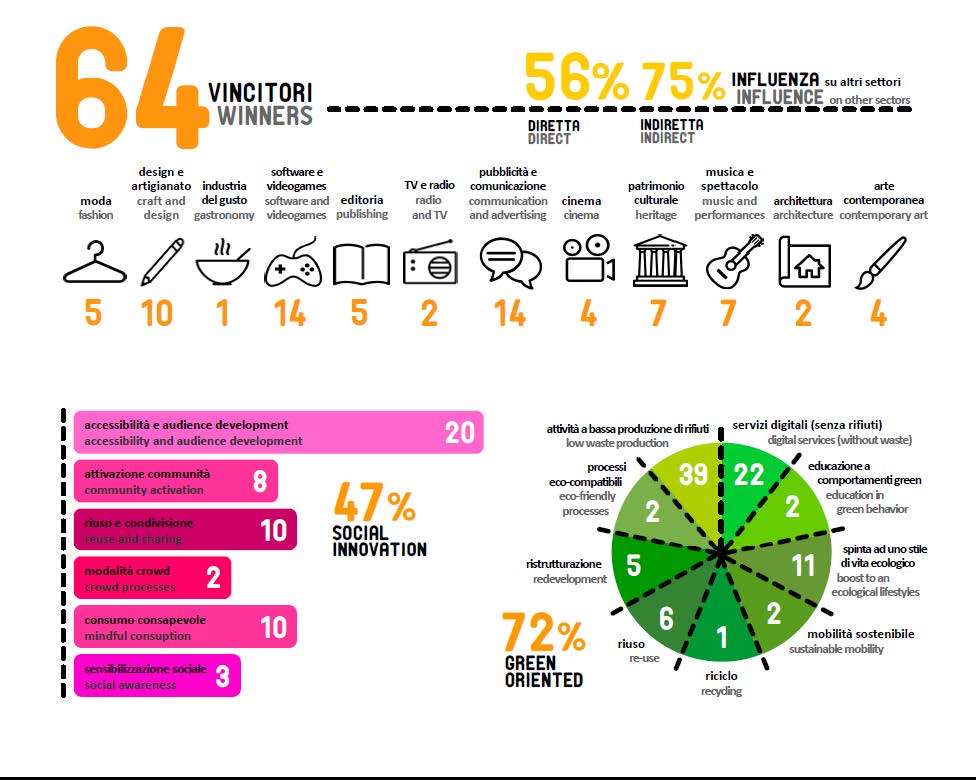
INCREDIBOL! IN ACTION
Fablab Bologna
In 2013, 18 citizens formed the MakeInBo association to promote creativity and innovation with the help of technology. Through Incredibol!, Bologna awarded MakeInBo €10,000 (about US $11,000) for the purchase of machinery and equipment, a free lease agreement, free professional advice, and promotion for their organization. After three years, the association evolved into FabLab Bologna, a company that provides a collaborative space with tools and training for those interested in design, electronics, and digital manufacturing. It is part of a global network of fab labs that grew out of program at the Massachusetts Institute of Technology, designed to provide access to technology and encourage creativity and invention.
FabLab Bologna is one of several businesses using rent-free space in the formerly abandoned offices in Piazzi dei Colori. It now works with about 30 individuals and has provided consulting services, project development, and prototyping for 40 companies, as well as 3D printing services, brokerage and resale of materials, and rental of digital machinery and tools.
About 80% of the company’s revenue comes from training services for companies, professionals, institutions, and secondary schools. FabLab Bologna has developed PlayMakers to respond to growing demand, which includes creative workshops within technical institutes (15 in the metropolitan area of Bologna), products for schools (educational kits on electronics and 3D printing, currently on sale online), and training modules for institutions and schools. In 2017, FabLab Bologna educational courses were held in 30 institutions, involving 1,000 students for over 2,000 hours.
In addition to its success as a for-profit company, FabLab Bologna dedicates two nights a weeks to pro bono consulting for interested residents and is an important part of the community.
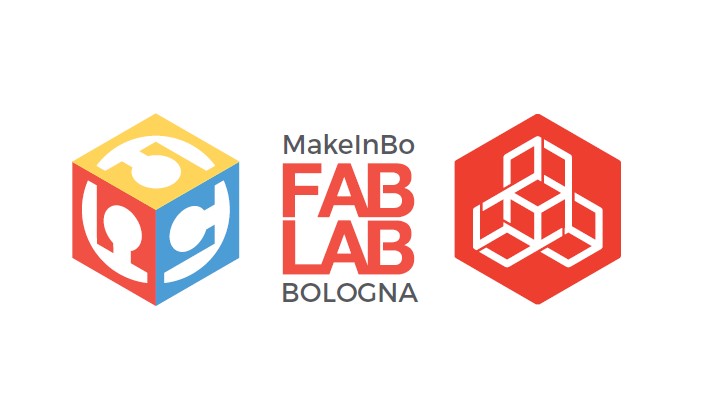
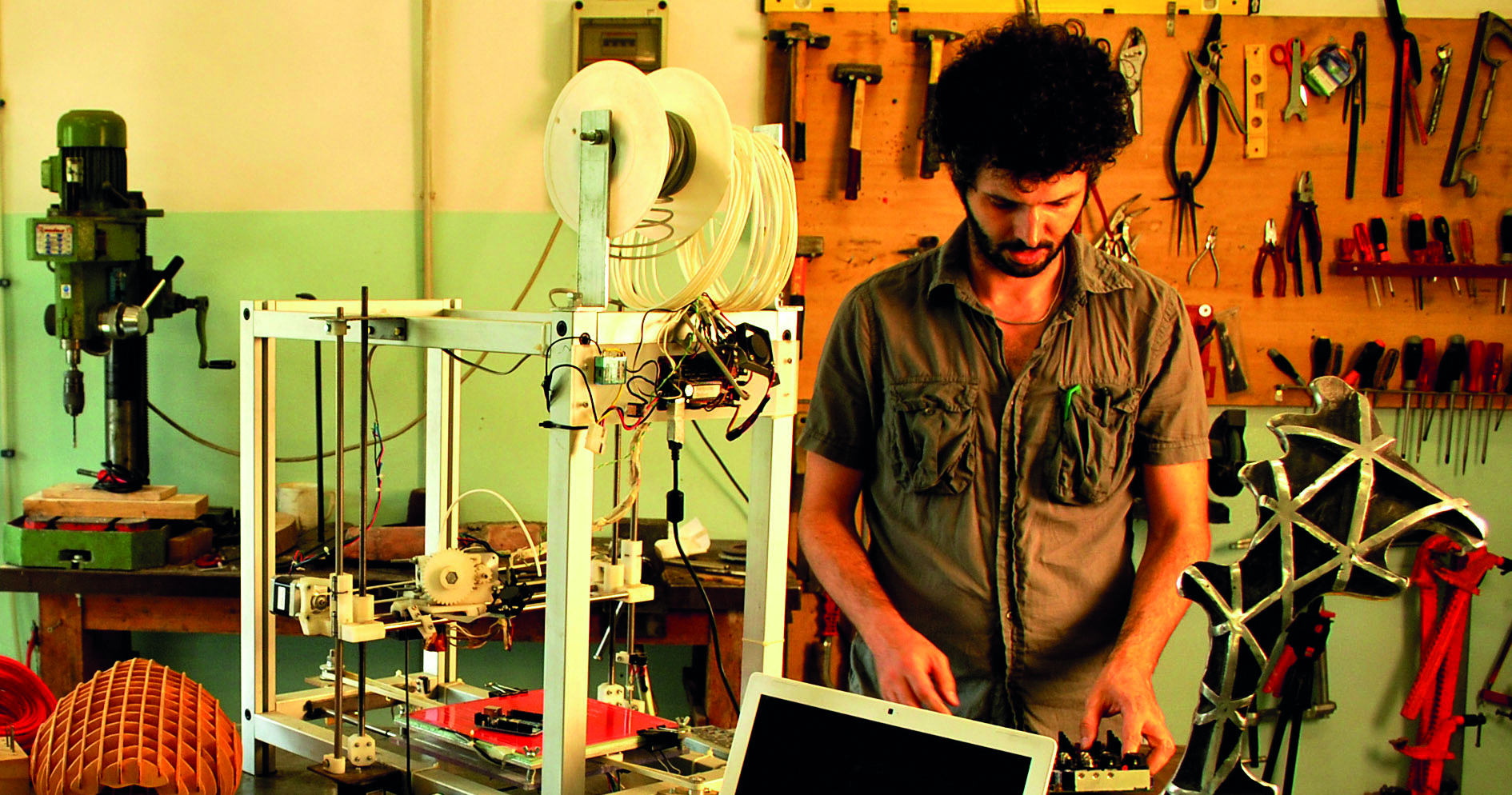
Kilowatt
For years, abandoned buildings and greenhouses stood empty inside Giardini Margherita, Bologna’s main city park. In 2015, the city of Bologna, together with private partners, received financing from the Emilia-Romagna Region to regenerate the greenhouses and two buildings. One of the city’s partners, the Kilowatt association, a co-op of citizens and partners, was given the opportunity to lease the two buildings at no cost through Incredibol!
The city awarded the use of the space at no charge, and Kilowatt transformed the abandoned buildings into a coworking space and a center for consulting, training, and education. It has since grown organically to become a community center and hub for creative professionals and entrepreneurs. The greenhouses also house a community garden and sustainably sourced café called Vetro.
Kilowatt hosts a variety of educational programs, camps, and community festivals, and is a free incubator for startups. It also provides coworking space for 16 people and offers child care for freelancers, a much-needed service.
Kilowatt’s services also include a program that provides support for immigrants in Italy, which has generated new small businesses. Farouk, an immigrant from Bangladesh and sous chef at Vetro, began to grow vegetables from his homeland in the community garden. This grew into a successful business selling ethically and sustainably grown vegetables and spices, such as okra, daikon, and turmeric, grown by immigrants.
The former eyesore is now a hub of innovation and creativity, a resource for startups and entrepreneurs, and an inspiration for the community.
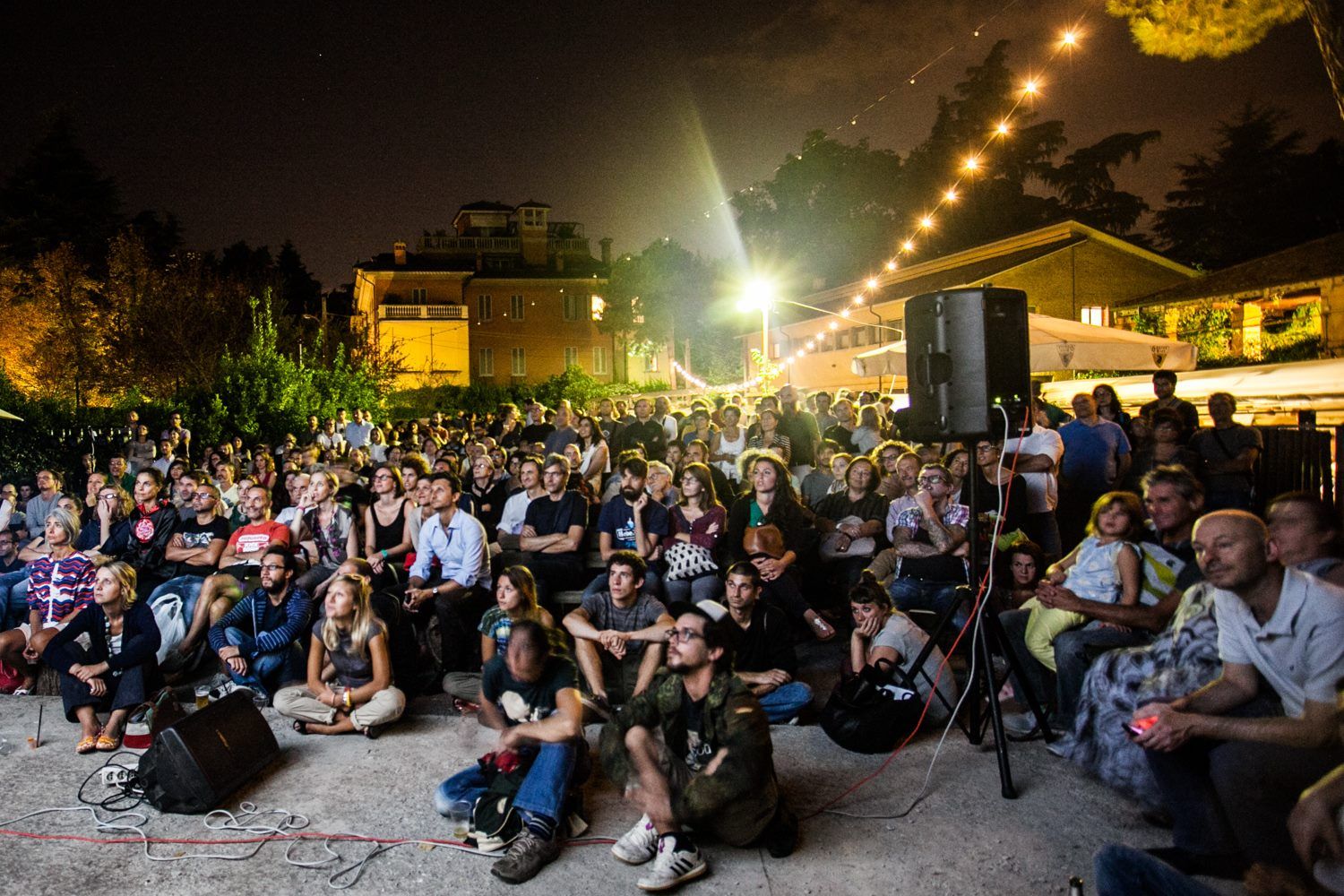
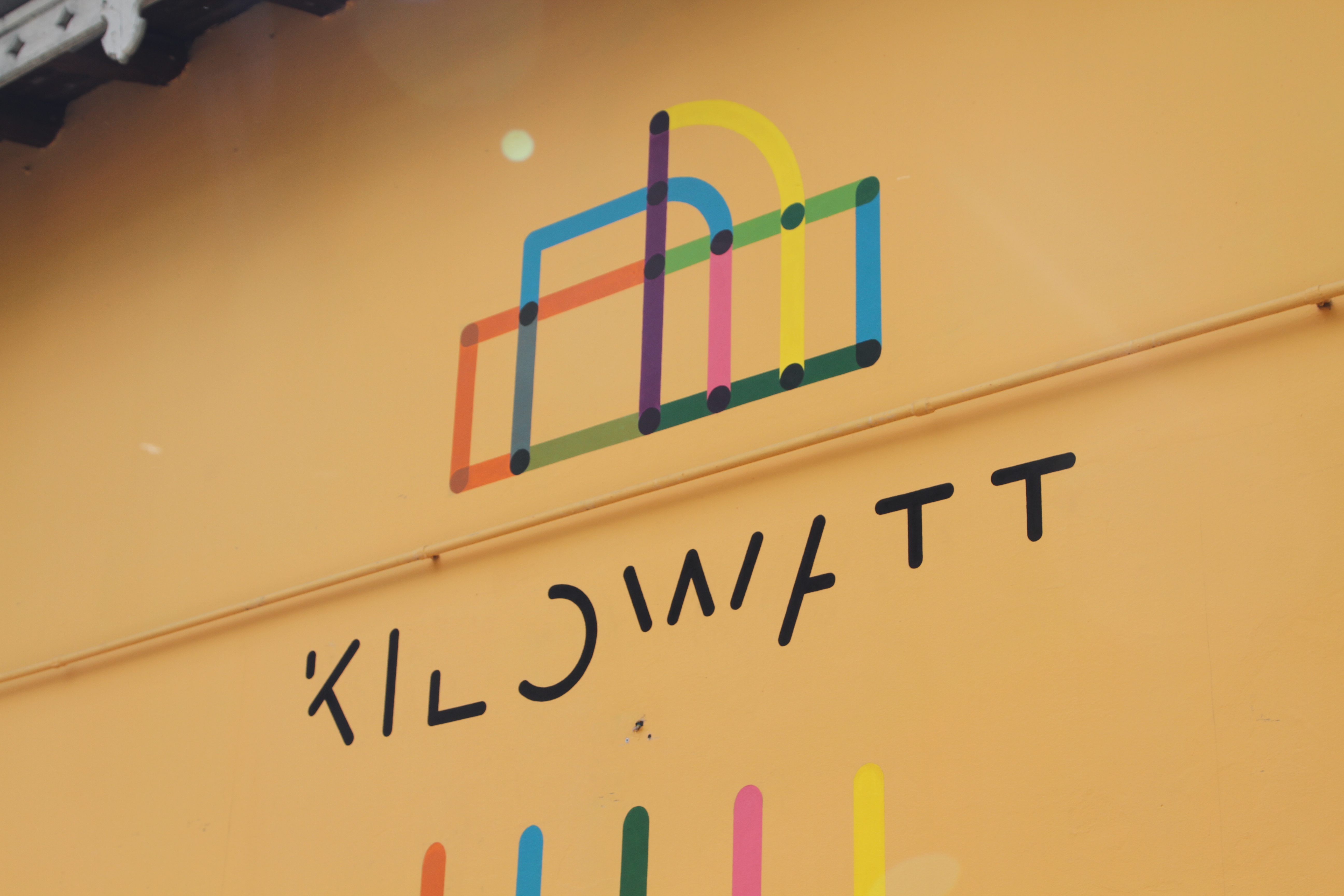
Dynamo
The group Salvaiciclisti-Bologna proposed Dynamo in the 2012 Incredibol! competition. They wanted a place for secure bike parking, as well as a community hub to promote sustainable urban mobility. As one of the Incredibol! winners, the project received the historic space underneath the Pincio staircase leading up to Bologna’s Montagnola park and near the city’s central train station. The large rooms under the staircase had served a variety of purposes, including sheltering Bolognese citizens from bombs during World War II and, more recently, it housed a parking garage. It was unused and abandoned when Dynamo took it over in 2015. The group cleaned and rehabilitated the building to create a bike park and community space.
Today, Dynamo functions as a self-sustaining cooperative, with 12 members and several employees. Among other things, it serves as a hub for a vegetable co-op and courier service, an event space, and it houses one outpost of LEILA, an objects library. It also has a café on-site and offers bike rentals and repairs, which keeps it financially sustainable.
Dynamo is located near the central train station, and commuters from the suburbs park their bikes there for a fee and take the train home. Dynamo also rents bikes to students and tourists and provides bicycle tours of the city. More than 56,000 bikes have been parked in the space since it was founded, and Dynamo has rented another 9,000 bikes and repaired 15,000. 350,000 In 2018 alone, the space generated €350,000. With little financial investment from the city, the previously unused space is now a successful small business and a center for biking and community in the heart of Bologna.
